第81章 IV(14)
I do not know that we ever apply to a plant any element which is not a natural constituent of the vegetable structure, except perhaps externally, for the accidental purpose of killing parasites. The whole art of cultivation consists in learning the proper food and conditions of plants, and supplying them. We give them water, earths, salts of various kinds such as they are made of, with a chance to help themselves to air and light. The farmer would be laughed at who undertook to manure his fields or his trees with a salt of lead or of arsenic. These elements are not constituents of healthy plants. The gardener uses the waste of the arsenic furnaces to kill the weeds in his walks.
If the law of the animal cell, and of the animal organism, which is built up of such cells, is like that of the vegetable, we might expect that we should treat all morbid conditions of any of the vital unities belonging to an animal in the same way, by increasing, diminishing, or changing its natural food or stimuli.
"That is an aliment which nourishes; whatever we find in the organism, as a constant and integral element, either forming part of its structure, or one of the conditions of vital processes, that and that only deserves the name of aliment." " I see no reason, therefore, why iron, phosphate of lime, sulphur, should not be considered food for man, as much as guano or poudrette for vegetables. Whether one or another of them is best in any given case,--whether they shall be taken alone or in combination, in large or small quantities, are separate questions. But they are elements belonging to the body, and even in moderate excess will produce little disturbance. There is no presumption against any of this class of substances, any more than against water or salt, provided they are used in fitting combinations, proportions, and forms.
But when it comes to substances alien to the healthy system, which never belong to it as normal constituents, the case is very different. There is a presumption against putting lead or arsenic into the human body, as against putting them into plants, because they do not belong there, any more than pounded glass, which, it is said, used to be given as a poison. The same thing is true of mercury and silver. What becomes of these alien substances after they get into the system we cannot always tell. But in the case of silver, from the accident of its changing color under the influence of light, we do know what happens. It is thrown out, in part at least, under the epidermis, and there it remains to the patient's dying day. This is a striking illustration of the difficulty which the system finds in dealing with non-assimilable elements, and justifies in some measure the vulgar prejudice against mineral poisons."
I trust the youngest student on these benches will not commit the childish error of confounding a presumption against a particular class of agents with a condemnation of them. Mercury, for instance, is alien to the system, and eminently disturbing in its influence.
Yet its efficacy in certain forms of specific disease is acknowledged by all but the most sceptical theorists. Even the esprit moqueur of Ricord, the Voltaire of pelvic literature, submits to the time- honored constitutional authority of this great panacea in the class of cases to which he has devoted his brilliant intelligence. Still, there is no telling what evils have arisen from the abuse of this mineral. Dr. Armstrong long ago pointed out some of them, and they have become matters of common notoriety. I am pleased, therefore, when I find so able and experienced a practitioner as Dr. Williams of this city proving that iritis is best treated without mercury, and Dr. Vanderpoel showing the same thing to be true for pericarditis.
Whatever elements nature does not introduce into vegetables, the natural food of all animal life,--directly of herbivorous, indirectly of carnivorous animals,--are to be regarded with suspicion. Arsenic- eating may seem to improve the condition of horses for a time,--and even of human beings, if Tschudi's stories can be trusted,--but it soon appears that its alien qualities are at war with the animal organization. So of copper, antimony, and other non-alimentary simple substances; everyone of them is an intruder in the living system, as much as a constable would be, quartered in our household.
This does not mean that they may not, any of them, be called in for a special need, as we send for the constable when we have good reason to think we have a thief under our roof; but a man's body is his castle, as well as his house, and the presumption is that we are to keep our alimentary doors bolted against these perturbing agents.